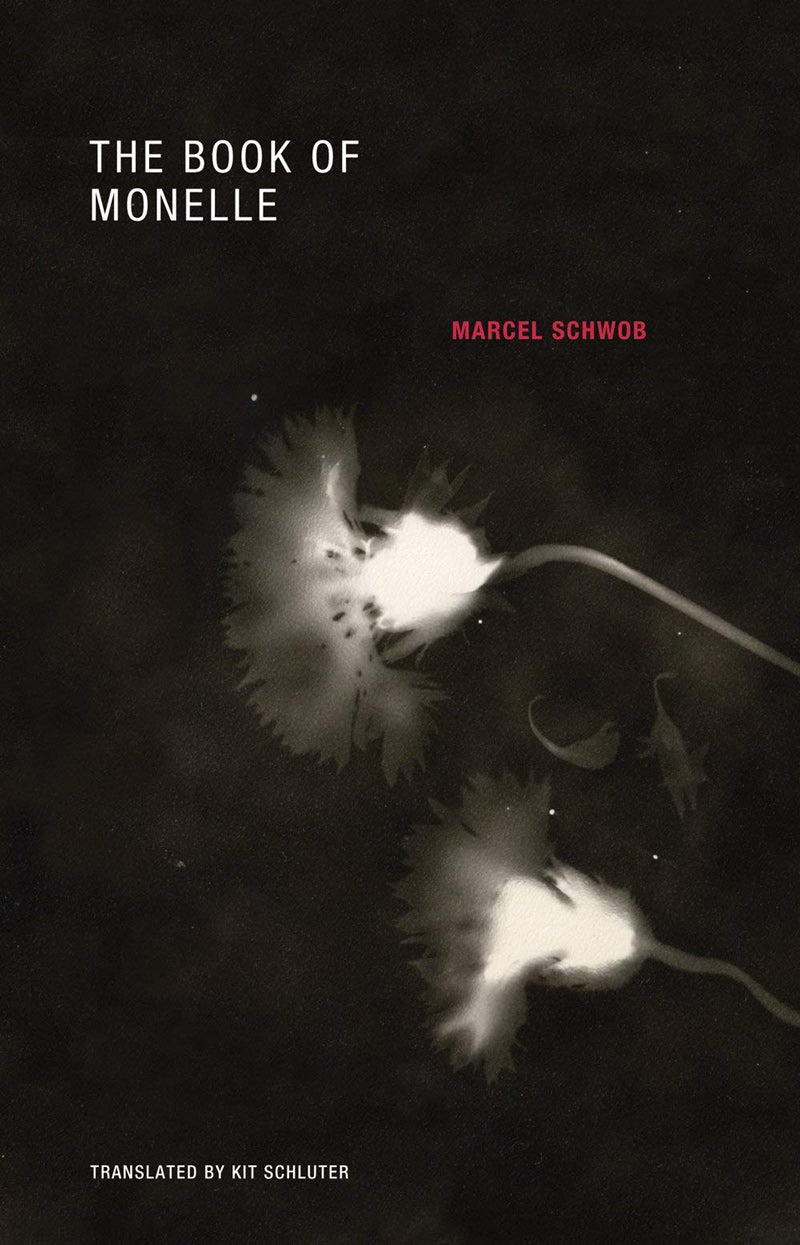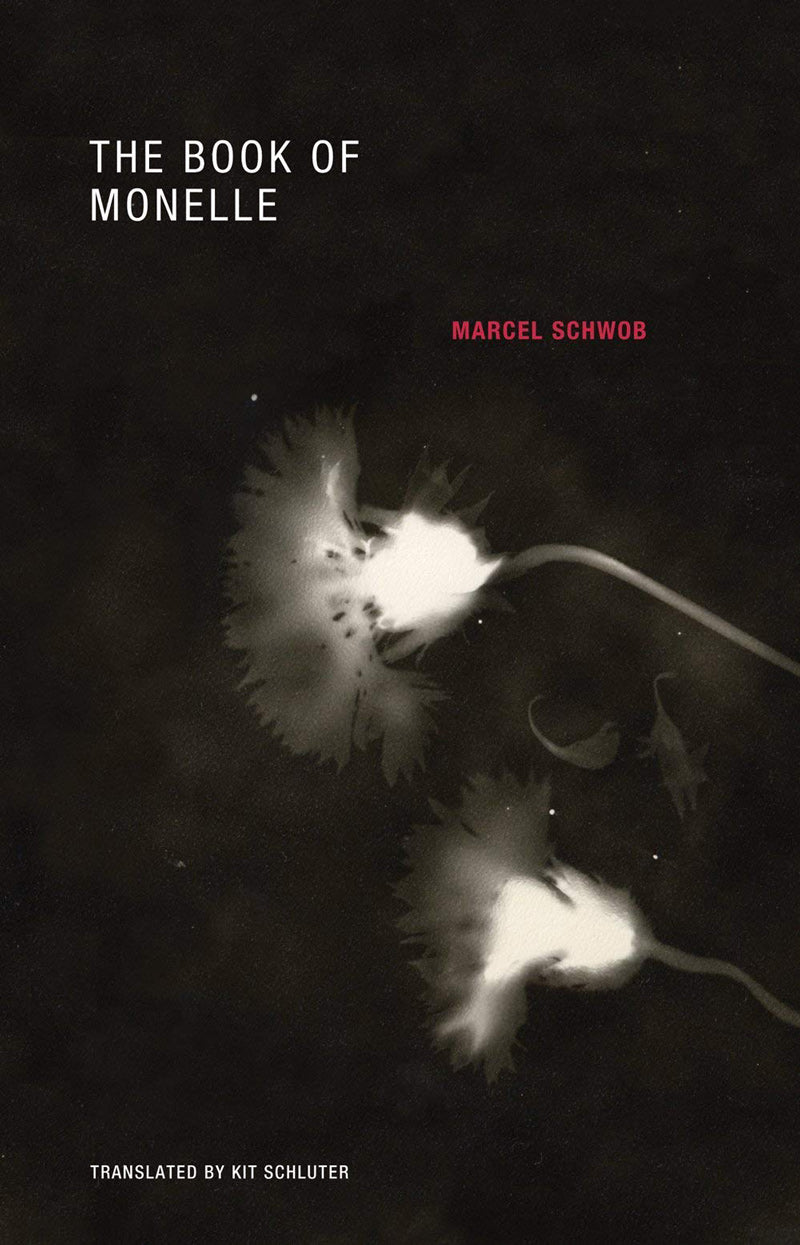The Book of Monelle
The Book of Monelle
Marcel Schwob
Couldn't load pickup availability
Translated, with an afterword, by Kit Schluter / October 2012 / 4.5 x 7, 128 pp. / 978-0-9841155-8-7
When Marcel Schwob published The Book of Monelle in French in 1894, it immediately became the unofficial bible of the French symbolist movement, admired by such contemporaries as Stephane Mallarmé, Alfred Jarry, and André Gide. A carefully woven assemblage of legends, aphorisms, fairy tales, and nihilistic philosophy, it remains a deeply enigmatic and haunting work over a century later, a gathering of literary and personal ruins written in a style that evokes both the Brothers Grimm and Friedrich Nietzsche. The Book of Monelle was the fruit of Schwob’s intense emotional suffering over the loss of his love, a “girl of the streets” named Louise, whom he had befriended in 1891 and who succumbed to tuberculosis two years later. Transforming her into Monelle, the innocent prophet of destruction, Schwob tells the stories of her various sisters: girls succumbing to disillusion, caught between the misleading world of childlike fantasy and the bitter world of reality. This new translation reintroduces a true fin-de-siècle masterpiece into English.
Marcel Schwob (1867–1905) was a scholar of startling breadth and an incomparable storyteller. A secret influence on generations of writers, from Guillaume Apollinaire and Jorge Luis Borges to Roberto Bolaño, Schwob was as versed in the street slang of medieval thieves as he was in the poetry of Walt Whitman. His allegiances were to Rabelais and François Villon, Robert Louis Stevenson and Edgar Allan Poe. Paul Valéry and Alfred Jarry both dedicated their first books to him, and in doing so paid tribute to the author who could evoke both the intellect of Leonardo da Vinci and the anarchy of Ubu Roi. He was also the uncle of Lucy Schwob, better remembered today as the Surrealist photographer Claude Cahun.
Press
“[A]n utterly heartbreaking book, beautiful in the torment and suffering that is manifested through its words.”
—Janice Lee, HTML Giant
“[The Book of Monelle] is an unsettling work, a triptych in which the singular is transformed into the universal."
—Stephen Sparks, 3:AM Magazine
“In Monelle Schwob fractures fairy tales, myths, legends, and literature—one catches glimpses, reflections, and re-imaginings of genies from the 1001 Nights, of De Quincey’s Ann, of Bluebeard, and of Cinderella—but so skillfully does he make the old stories new, so skillfully does he preserve the strangeness of the old, that his tales never come off as warmed-over borrowings. One reason for this is that, in Kit Schluter's English, Schwob's style is a continual delight.”
—David Cozy, The Review of Contemporary Fiction
“It is a work of poetic force and intuitive form, and the book Schwob was best known for during his lifetime.”
—Martin Riker, The Wall Street Journal
A "Best of the Small Press" selection by CAConrad.


